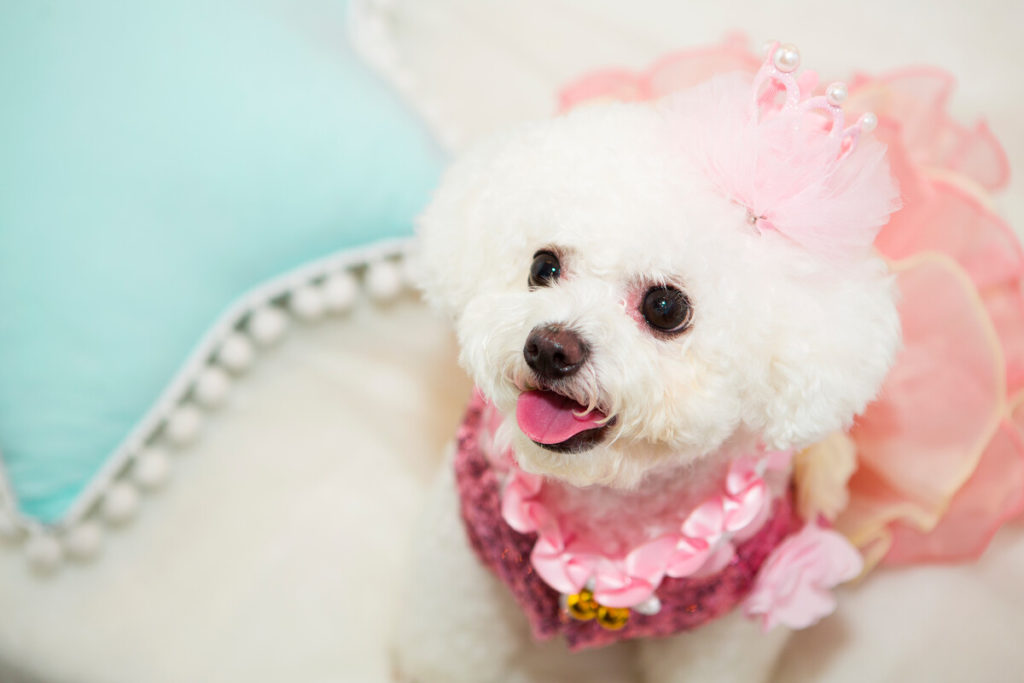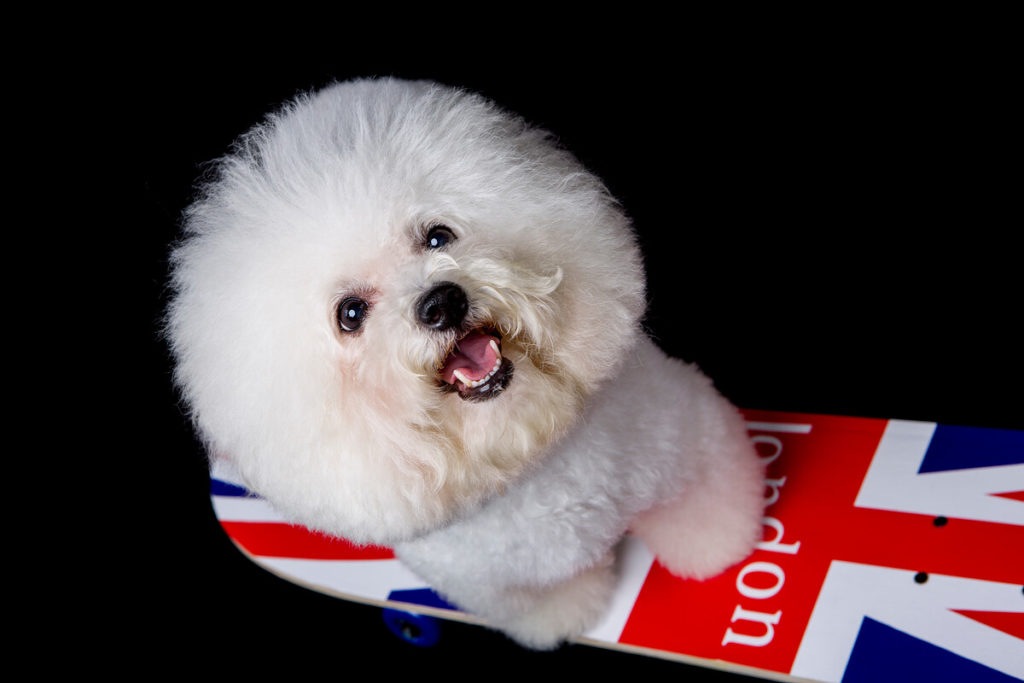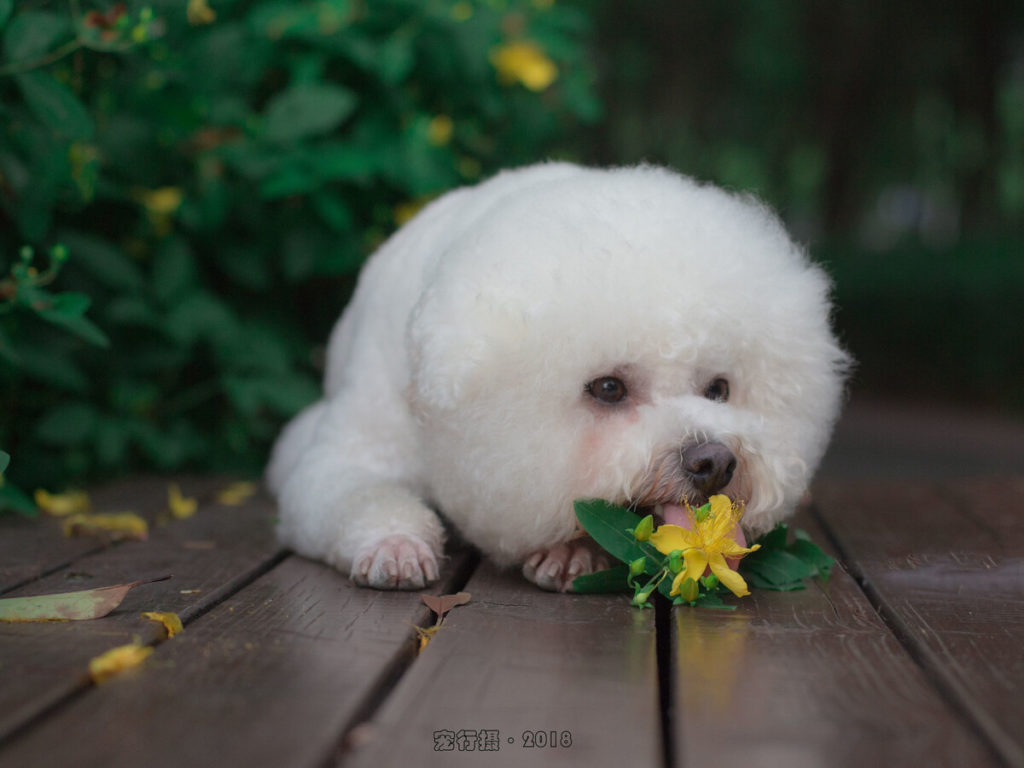Labradors are beautiful and friendly dogs. They get along well with adults, kids, and other pets, including cats. But do they smell? We answer that question, and give you ways to keep your Lab smelling clean and fresh.
Do Labradors Smell
Just like any other dog breed, Labradors can smell bad. There are many different causes that could lead to a bad smelling dog. The causes of the smell may include:
- Natural metabolic secretions
- Poor diet
- Yeast infection
- Rolling in smelly substances
It is essential to determine the cause of the smell before looking for a solution. Once you have determined the cause, you can use various techniques to prevent and eliminate the odor.
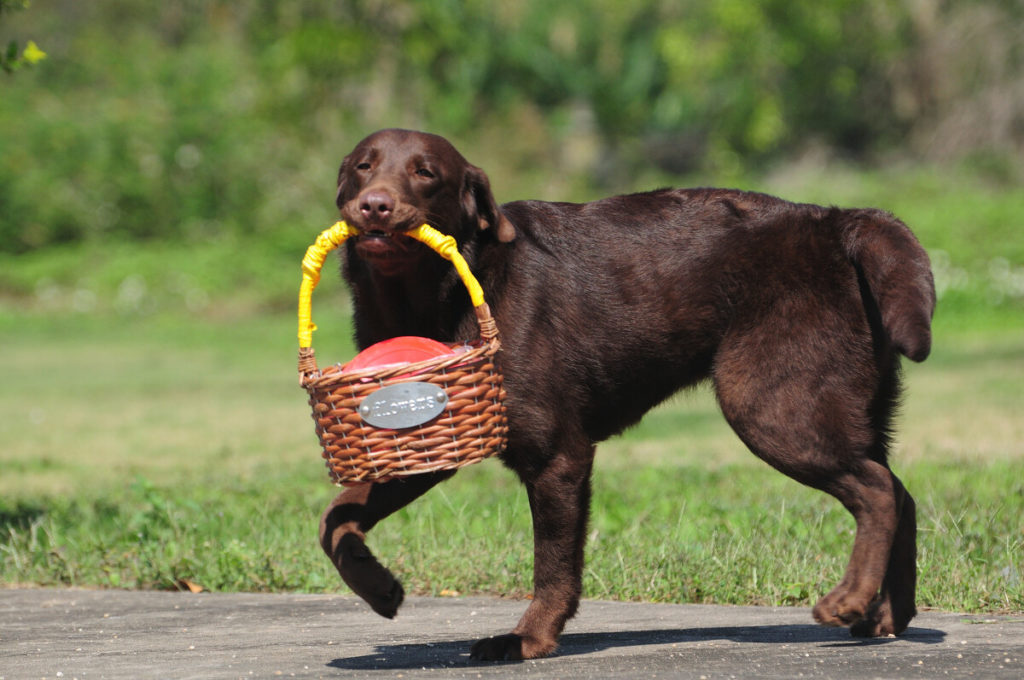
Why Labradors Smell
Metabolic reactions, including skin oils, can cause Labradors to smell. Moist areas have the most concentration of bacteria and usually produce the most odor.
The moist areas include the:
- Mouth
- Nose
- Under the tail
- Ears
- Skin folds
Apart from metabolic secretions, there are many other causes of bad odor in Labradors.
Health Problems
Several health problems may cause Labradors to smell. Some may have bad breath caused by diabetes or kidney failure.
Although normal dog breath is a bit smelly, excessively smelly dog breath may be a sign of poor health. Teeth and gum diseases may also cause bad breath in Labradors.
Gum and teeth diseases may also cause increased drooling. Some of the saliva in a drooling dog may get to its fur, which may cause it to smell even more.
The bad odor may also be caused by bacterial infections in the ears, which may cause the dog to shake its head excessively. Watch for this in your Lab and make sure you keep their ears dry and clean.
Flatulence can also cause bad smell in dogs. Persistent flatulence may be caused by infection of the intestines or other areas of the gut. An infection of the anal sacs may also cause bad odor in Labradors.

The anal sacs are some form of marking glands located in the anal area. Dogs squeeze the anal sacs during pooping, which causes the sacs to release a smelly secretion.
Labradors can also secrete the smelly secretion onto their fur when scared or excited, which may cause them to smell.
Cheese-like Smell
These infections tend to occur in moist areas of the dog’s body. Bacterial and yeast infections may cause itching, which prompts the dog to scratch the itchy part.
Scratching may cause inflammation, which may worsen the infection. Treating the infection may eliminate bad odors.
If you notice your Labrador having a cheese-like smell, consider checking its ears. Labradors are susceptible to ear infections due to the overgrowth of yeast.
Signs of yeast infection in the ears include:
- Moldy odor from the ears
- Red, itchy ears
- Debris on the ear lobes
Ear infections may also be a sign of hypothyroidism, a more serious health complication.
Pyoderma
Labradors are vulnerable to pyoderma, a form of skin infection. This condition is more common in dogs with double coats.
Common causes of pyoderma include:
- Autoimmune disorders
- Allergies
- Cancer
- Thyroid diseases
- Liver diseases
Signs of pyoderma include:
- Hair loss
- Scales
- Itchiness
- Pustules
- Foul smell
Canine Atopic Dermatitis
This is one of the most common health complications among Labradors.
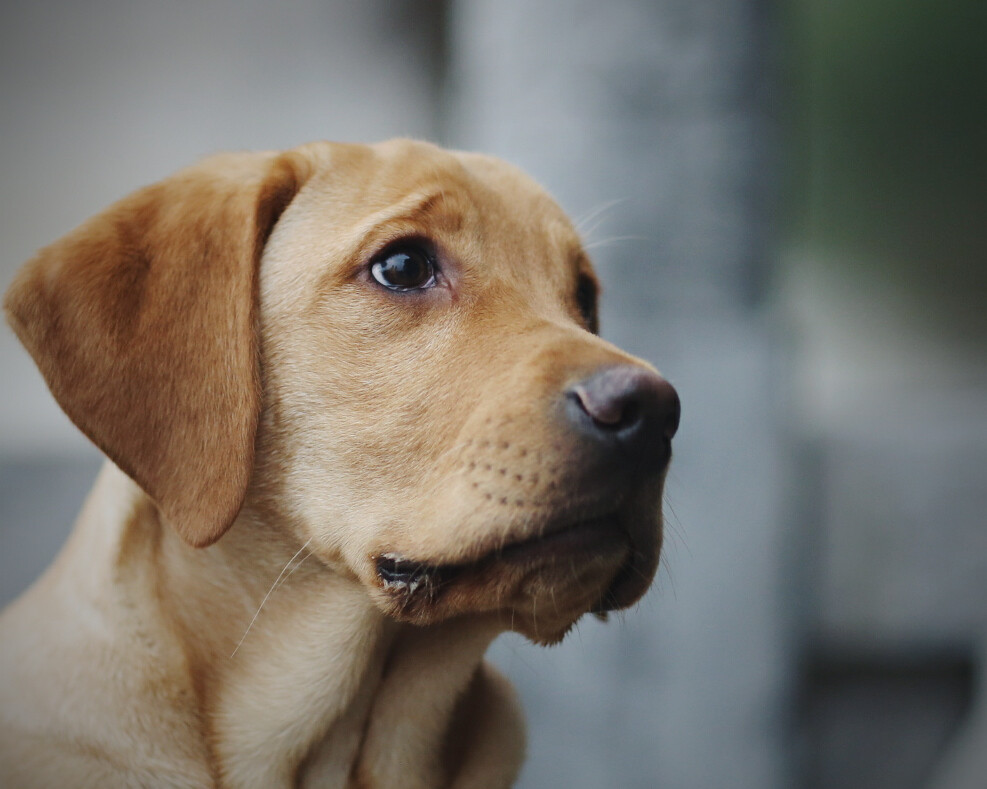
Symptoms of canine atopic dermatitis include:
- Red, dry, or oily skin
- Hair loss around the muzzles and eyes
- Mild to severe itching
- Skin lesions
Causes of canine atopic dermatitis include:
- Flea bites
- Contact with allergens
- Intolerance to some foods
Rolling on Smelly Substances or Water
Your Lab may become smelly if it rolls on smelly substances. Consider taking steps to ensure your Lab does not roll on smelly objects, including grass and dirt.
Dogs that have been in water also smell bad. If your Lab has been playing in rain or pool water, its fur may produce a distinct, unpleasant smell.
If your Lab has been playing on dirty water, consider washing it before the water sticks to its coat. In addition, avoid letting it inside your house after washing it.
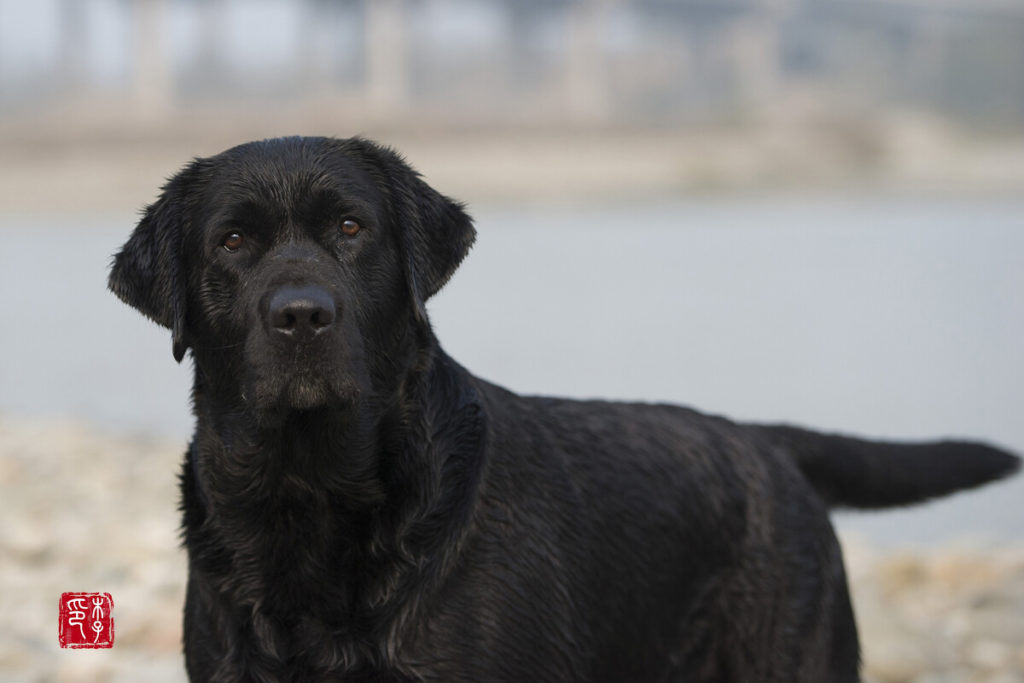
Infections
Common infections that may cause your Lab to smell include yeast and skin infections. Yeast is one of the most common health complications in Labradors.
A bad smell usually accompanies yeast infection. Common signs of yeast infection include smelly paws and ears.
Labradors with yeast infection usually scratch their ears and paws regularly. Take your Lab to the vet if you suspect a yeast infection.
Skin infections can also cause your Lab to smell. Signs of skin infection include regularly scratching, thinning of hair, and flaking of skin.
Bad Diet
A poor diet may also cause your Lab to smell. Bad diet may cause flatulence and bad breath, both of which can cause your Lab to smell.
If your Lab starts smelling bad after a diet change, the diet could be the likely cause of the bad smell. Consult your vet for your dog’s diet recommendations.
How to Improve the Smell of Your Labrador
Various factors cause Labradors to smell. Fortunately, you can use some tips to improve the smell of your Lab. Below we list some of the most common ways you can get them back to smelling clean and fresh.
Tips to Improve The Smell of Your Lab
Keep Your Dog Dry
When your Labrador gets wet, it can become smelly. Wet dog coats may also cause infections. Be sure to dry your dog’s ears and skin when they get wet. In addition, check your dog’s ears regularly for signs of infections.
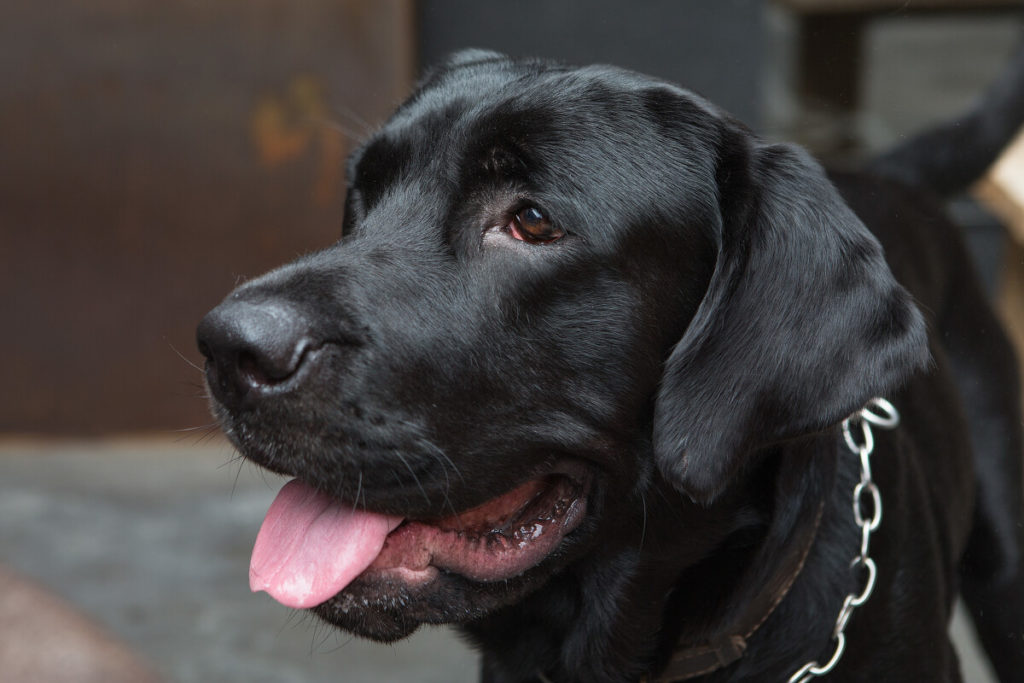
Diet and Hygiene
Consult a vet to determine the best diet for your Labrador. A bad diet can cause your dog to smell.
Wash and groom your Lab regularly. Cleaning your Lab gives your dog’s coat a fresh smell.
Regular cleaning of your Lab also removes loose fur on its coat, which may increase bad odor. Remember, Labradors may be a bit smelly after cleaning, but the smell should go away once the coat dries.
Keep smelly objects and substances away from your dog’s play area. This will prevent your Lab from playing or rolling on the smelly objects.
Be sure to clean all your Lab’s beddings regularly. Your dog’s beddings may harbor fleas, bacteria, and parasites.
Wash your Lab’s bedding with hot water and vinegar or baking soda to eliminate odors. However, avoid using a fabric softener when doing your dog’s laundry to prevent allergic reactions.
Regular Grooming
Take some time to groom your Lab regularly through bathing, drying, and brushing. Regular grooming prevents infection-causing bacteria from accumulating on the coat of your Lab.
Brushing loose hair helps to stimulate the skin to secrete oils, which prevents bacterial infection and yeast growth. Be sure to check out our article for The Best Dog Brushes for Labradors.
An essential part of grooming is dental care. Consider cleaning your Lab’s teeth regularly. Buy a dog toothbrush and use it to brush your dog’s teeth at regularly.
Ask your vet for a dental check up and cleaning to insure that your dog’s mouth remains healthy. Your vet should also help you treat gum and teeth infections, if any are found.
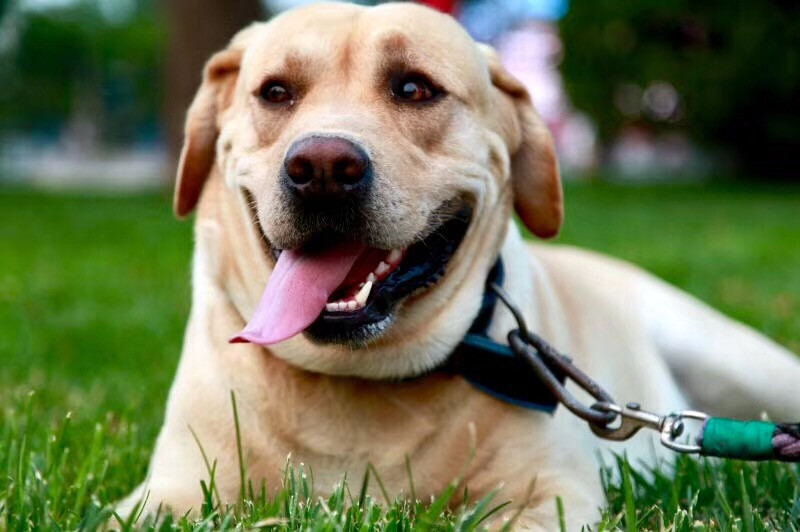
Talk to a Vet
Consult a vet if you cannot determine the exact cause of the bad smell. This is a great option, especially if your Lab has had the smell for a long time.
Visit a vet if you suspect a medical cause of the bad smell. The vet should provide you with expert advice tailored to your Labrador.
Your vet might ask you a few questions to help with the diagnosis, including:
- When did the bad smell start?
- When does the dog tend to smell bad?
Just remember to bring as much information as you can to the appointment. It helps to get an accurate diagnosis.
Conclusion
So, like any creature, Labradors can smell bad. Fortunately the smell can be greatly improved if you can determine the causes. Using our tips above is the first step to keeping your Lab clean and smelling great!
Labradors are beautiful dogs, and they can smell wonderful as well. It just takes a little time, effort, and love!


